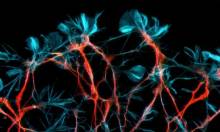The "faulty" neurons behind brain tumors
 Posted date: 26 Dec 2019
Posted date: 26 Dec 2019
Headaches, nausea, drowsiness, loss of muscle control, difficulty in swallowing: these are the symptoms that characterize most cases of medulloblastoma, the most common brain tumor of childhood which can also affect adults.
About seven in one million children are diagnosed with medulloblastoma in Italy based on data from Associazione italiana registri tumori (Italian tumor registry). It seems that the symptoms appear when the cerebrospinal fluid stops circulating inside the central nervous system because of the tumor.
But the cause of medulloblastoma and its risk factors are still unknown.
Researchers at the University of Trento investigated the onset mechanisms of this type of tumor, and their findings were recently published in Cell Reports.
Their research study focused on a subset of medulloblastoma with specific molecular characteristics (sonic hedgehog-associated medulloblastoma-SHH), and was funded by the Armenise-Harvard Foundation and the AIRC Foundation for Cancer Research.
The research team coordinated by Luca Tiberi (Armenise-Harvard Laboratory of Brain Cancer, Cibio Department, University of Trento) is of the opinion that this particularly aggressive tumor may be caused by faulty neurons.
Tiberi explained: "We identified a new mechanism through which medulloblastoma develops. Previously, the assumption was that only stem cells, which are responsible for tissue growth and propagation especially in children, could develop into tumors. But we demonstrated that neurons too, that are fully developed cells, can develop into tumors. This discovery opens new horizons for cancer research and may even change the way in which tumors are diagnosed and cancer drugs are tested and developed".
It is a breakthrough given that brain tumors are very aggressive and there are not many therapeutic options available.
Surgery is not always possible, and chemotherapy and radiation therapy are not very effective in these cases. Besides that, it is rather common that the tumor reappears after some time even when treatments are successful. When this occurs, treatments are usually ineffective.
The survival rate at five years from the diagnosis of medulloblastoma is around 60-70% (source: AIRC Foundation for Cancer Research).
Posted By

GSP Admin




